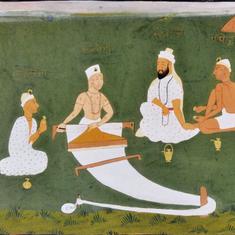President gives assent to bill on appointments to Election Commission
Under the law, a selection committee for the appointment of the election commissioners will consist of the prime minister, leader of Opposition and a minister.

President Droupadi Murmu on Thursday gave her assent to the bill that seeks to govern the appointment and service conditions of the chief election commissioner and other election commissioners.
The law, the Chief Election Commissioner and Other Elections Commissioners (Appointment, Conditions of Service and Term of Office) Bill, was cleared by the Lok Sabha on December 21. The Rajya Sabha passed it on December 12. It has now been notified in the official gazette.
It aims to constitute a selection committee for the appointment of the election commissioners, consisting of the prime minister (as chairperson), the Leader of the Opposition in the Lok Sabha and a Union Cabinet minister nominated by the prime minister.
According to the procedure prescribed by the law, a search committee consisting of three bureaucrats from the Union government will prepare a list of five persons for the consideration of the selection committee. The election commissioners will be appointed from the names in this list.
The bill provides the following qualifications for appointment as chief election commissioner or election commissioner:
- Currently holding or has previously held a post equivalent to the rank of Union Secretary
- A person of integrity
- Possessing knowledge of and experience in management and conduct of elections.
There are no objective criteria laid down to determine how the second and third qualifications can be met, leaving them to the subjective view of the search committee.
With regard to the constitution of the selection committee, the bill clarifies that if there is no recognised leader of Opposition in the Lok Sabha (as is the case in the current Lok Sabha), the leader of the single largest Opposition party in the Lok Sabha shall be deemed the member of the selection committee as leader of Opposition.
In the last few years, both Opposition party leaders and civil society members have questioned the independence of the Election Commission, in light of some of its decisions that have seemingly favored the Narendra Modi government and the Bharatiya Janata Party.
The new law does away with the arrangement put in place by a Supreme Court judgement delivered in March that had formed a selection committee consisting of the prime minister, the Leader of the Opposition in the Lok Sabha and the chief justice of India, until Parliament came up with a law.
The Supreme Court had formed this committee to shield the Election Commission from executive influence.
Before this judgment, the appointments to the commission were made at the sole discretion of the Centre. However, the bill, by replacing the chief justice with a nominee of the prime minister, brings the matter of selecting the chief election commissioner and other election commissioners back within the Centre’s control.
A batch of petitions filed in the Supreme Court between 2015 and 2020 had challenged the method of appointing the chief election commissioner and election commissioners solely by the Union government.
The petitions had argued that such a system of appointments violated Article 324(2) of the Constitution that deals with the composition of the Election Commission.









